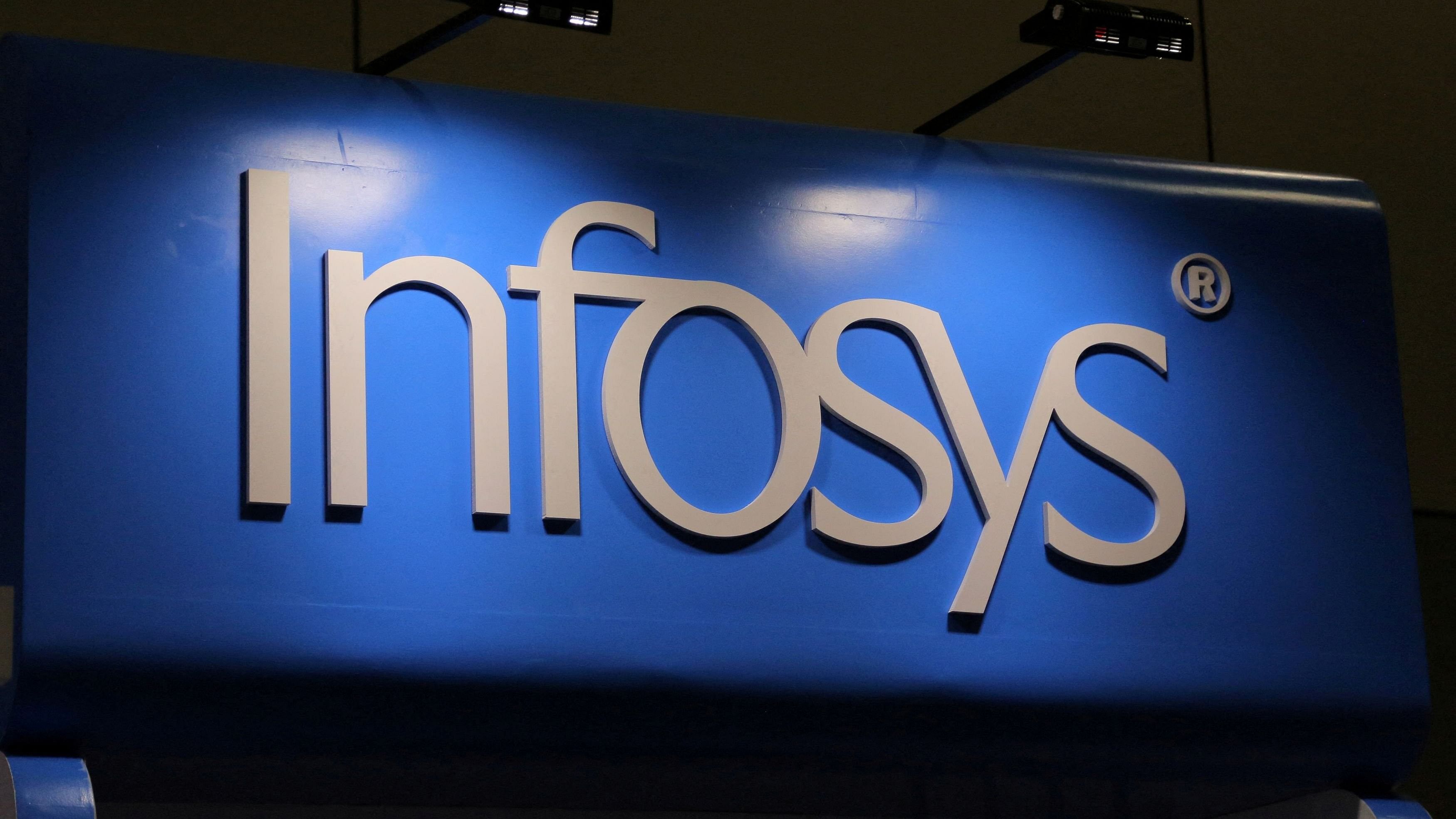
The Infosys logo
Credit: Reuters Photo
Bengaluru: Creating blueprints for solving industry-specific challenges through artificial intelligence (AI), the Bengaluru-based information technology behemoth, Infosys, now sees itself as an AI-first enterprise.
Speaking at the company’s 43rd annual general meeting on Wednesday, its chairman Nandan M Nilekani, told shareholders that the spotlight was on using an “AI-first strategy” to accelerate business value. Having already drafted 23 such AI-driven tools, the company is presently working on 225 other generative AI programmes for its clients. Infosys is also preparing for the next phase of automotive innovation in software-defined vehicles, he added.
Such is the focus that the company is also zealously hiring people with generative AI skills and upskilling them. This is amplified by its 50,000 reusable intelligent services applied in over 25,000 instances. Nilekani said, “Infosys has built strong domain-relevant enterprise AI capabilities – from the foundation up.”
The company’s many international and domestic acquisitions such as in-tech, inSemi, Danske IT and Support Services are supporting their own platforms. Infosys Topaz is an AI-first set of services using generative AI technologies and Infosys Cobalt provides cloud solutions to enterprises. Growing in the field of IT services, they aim to use AI for the next phase of productivity for enterprises.
For a company that has presented an outlook of tepid revenue growth in the current financial year, securing important deals have become imperative for progress, as analysts have pointed out in the past. In this pursuit, the company has realised that AI evidently is the way forward.
Nilekani is quick to point out people acceptance of AI’s positive potential as any other general-purpose technology. “As we look at the larger business environment, we are now into the second year of the generative AI revolution, and the initial AI doomerism has quietened down,” he underscored.
Also going over the company’s performance in FY24, Nilekani pointed to the total payout of Rs 48 apiece as dividend for the year, in line with its policy of returning approximately 85% of the free cash flow cumulatively over a 5-year period.